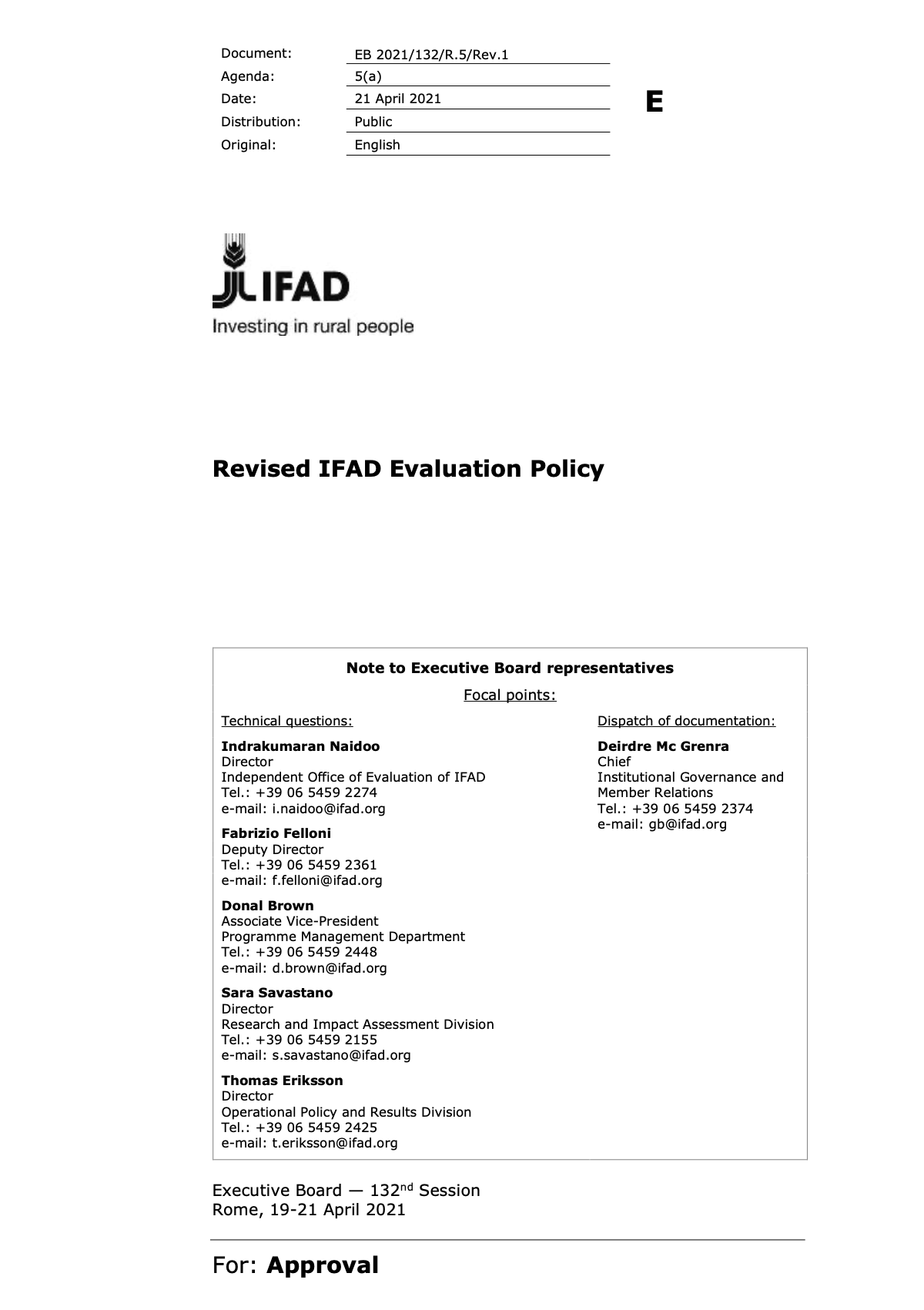Evaluation policy - IOE

Evaluation policy
At its 132nd session, the IFAD Executive Board endorsed the Fund's revised Evaluation Policy. For the first time, the Policy covers the entire spectrum of the organization’s evaluation system. The new Policy encompasses both self- and independent evaluations. By establishing key principles for both, the Policy lays the foundations for enhanced consultation and collaboration.
Within this rubric, the revised Policy also reaffirms the independence of IOE. Upholding the provisions that safeguard the behavioural, organizational and structural independence of the Office, the Policy guarantees the avoidance of conflicts of interest. Moreover, the Policy clarifies that accountability and learning are objectives of evaluation and are embedded in a number of significant changes implemented over the recent past.
At the same time, the new Policy retains the features of the past policy to ensure that evaluations help IFAD account to its governing bodies, programme countries, donors and beneficiaries for being organizationally and developmentally effective. It also reflects IFAD’s increasing focus on embracing a culture of evidence-based management to maximize development effectiveness.
The process that the led to the successful revision of the Policy started in 2019, when the External Peer Review of the IFAD evaluation function recommended revising the former Policy, dated 2015. In response, IFAD established a joint task force that brought together IOE and the Fund’s Management, notably the Programme Management Department and the Strategy and Knowledge Department.
The IFAD Evaluation Policy is available in Arabic, English, French and Spanish to facilitate its use in all regions where IFAD has operations.